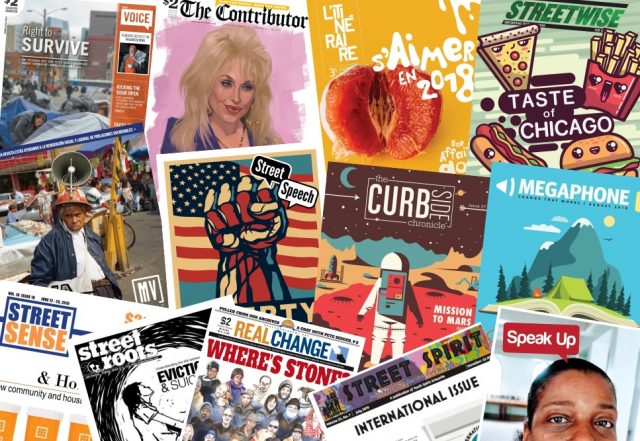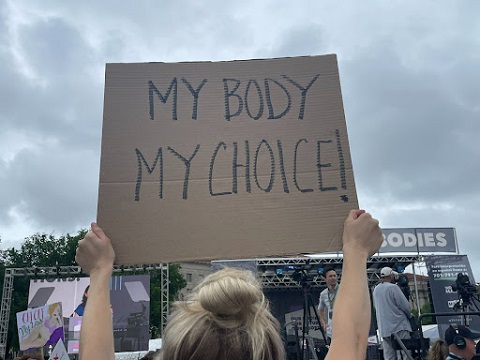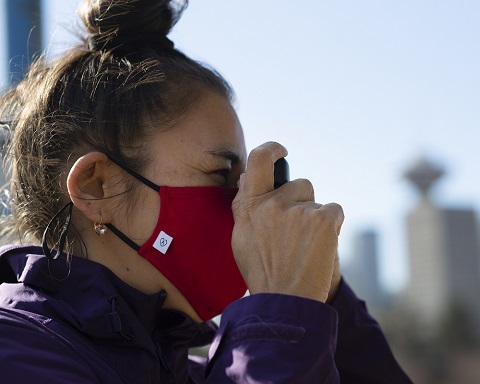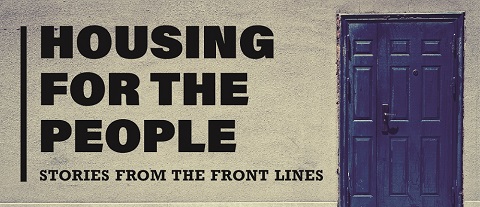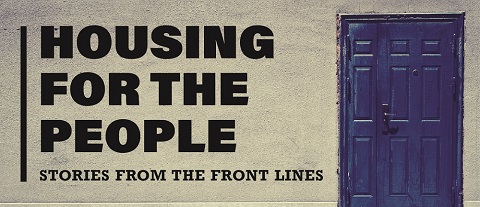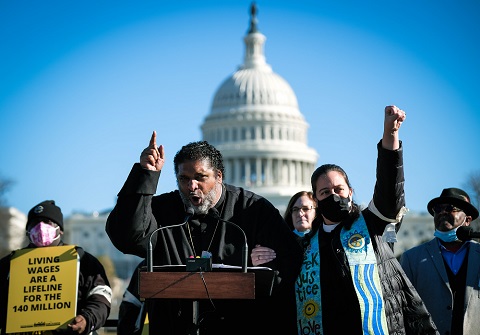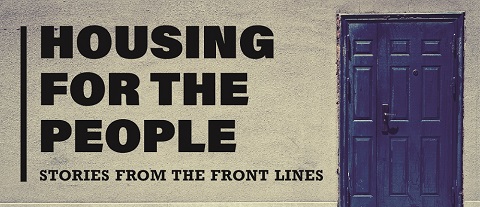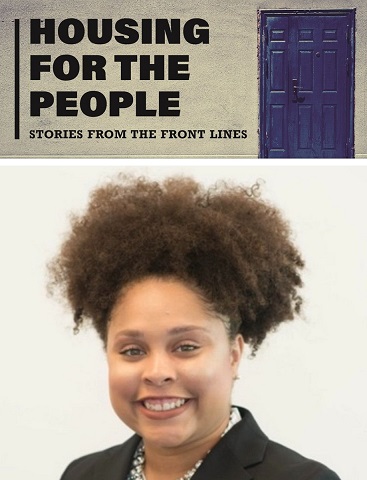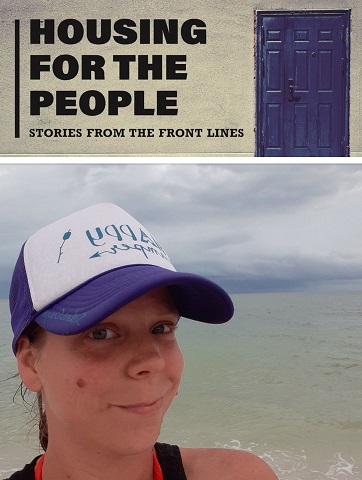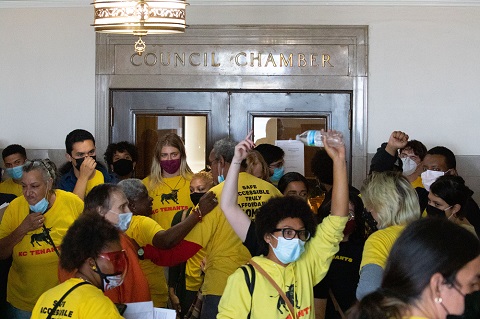By Ann-Derrick Gaillot
It’s no small feat to become one of the best athletes in the world by the time you can rent a car. And yet 23-year-old tennis champion Naomi Osaka has accomplished that while quickly learning how to wield the sizable platform that comes with it. As of this writing, she has won three Grand Slams and is well on her way to her fourth. Meanwhile, the story of her success is forever linked with a long tradition of athletes fighting for social justice. Inspired by anti-racist protests last summer calling for police defunding, Osaka, who is Japanese-Haitian-American, used her competition in the US Open last year — which she won for the second time — to bring global attention to the Black Lives Matter movement.
At each game, she stepped on to the court wearing masks with the names of victims of racist police violence. From the one she wore at her first game to honor Breonna Taylor to the one she wore at her final game in honor of Tamir Rice, Osaka smartly diverted global attention to the individuals’ stories as reporters asked her about the masks in post-game interviews. Viewers at home, many across the world who were unfamiliar with them, Googled the names and learned their stories.
With so much success still early in her life, she potentially had a lot to lose in taking a political stance on, well, anything. As history has shown, athletes of color who speak out on issues like racial injustice and police brutality can easily become blacklisted in their sport, as has famously been the case with Colin Kaepernick, who began kneeling during the national anthem at NFL games to protest US racism in 2016. Nevertheless, Osaka, who’s gained a reputation for being shy, has continuously displayed a sharp understanding of the limelight and her place in it as a young, mixed-race woman.
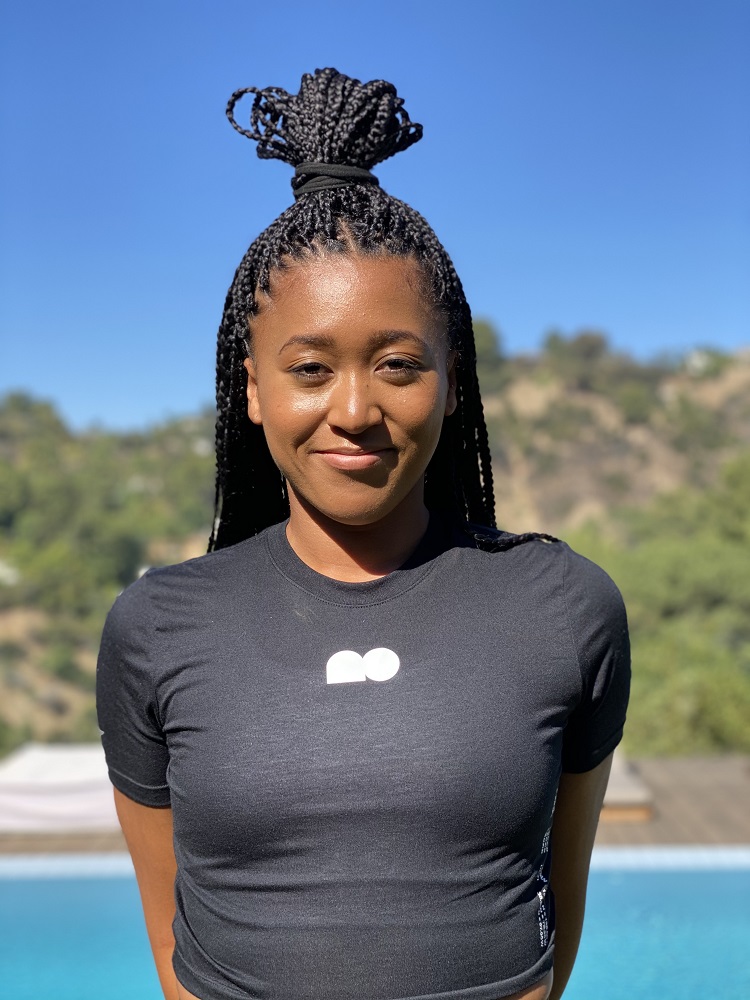
Born in Japan to a Japanese mother and a Haitian father, Osaka and her sister Mari, also a professional tennis player, grew up in the US and represent Japan in their sport. Osaka’s winning record, her multicultural background and life, and her Gen-Z relatability have all helped make her one of the most marketable athletes in the world. In 2020, she surpassed Serena Williams, who along with her sister Venus paved the way for black women in tennis, to become the highest paid female athlete. Ever. Meanwhile, in 2019, Osaka rose to become the No. 1 ranked tennis player in the world, the first Asian woman ever to do so.
Since her US Open demonstration last year, Osaka has continued using her winning play and her global popularity to lend attention to racism, including the recent spike in anti-Asian racism and hate crimes, as well as anti-racist efforts. She has also put her money where her values are, investing in women’s sports and youth education. Osaka took some time from preparing for the 2021 Australian Open to speak with INSP about giving back to her communities.
Ann-Derrick Gaillot: You recently invested in and became a team owner of the National Women’s Soccer League team, the North Carolina Courage. What are your hopes for the team and for yourself as an owner of a women’s team?
Naomi Osaka: Investing in a women’s soccer team was something that I had been thinking about for quite a while actually. Tennis is one of the only global sports where there is parity in prize money between men and women so I’ve been particularly motivated to support female athletes in sports where that is not the case. My hope for the team is that they continue to inspire the next generation of young girls into believing that they can do anything they put their minds to (often, better than the boys!). Also, in terms of my role on the team, I hope that it encourages more women to take leadership roles in organizations.
Last year you used your visibility during the US Open to raise awareness of Black victims of police violence in the US. Can you talk a little bit more about this experience? What responsibilities do you think public figures in supposedly non-political fields, like sports and entertainment, have in speaking out about social issues?
Athletes have been taking a stance against injustices for a while. That said, it’s important to remember that even Colin Kaepernick was admonished when he took a knee during the national anthem. I think that even since then, more athletes and entire leagues have been taking risks in their political stances but there’s a lot more to be done and it will take everyone working together to enact change, not just athletes of color. In terms of my decision, it was one that was of course emotional but I knew that I had to do it. Because tennis is such an international sport, it meant a lot to me that I got to be the person to teach my international fans who may have never seen those names before about what was going on in America and encourage them to have those hard conversations.
![Naomi Osaka of Japan in action during her first-round match at the 2019 Nature Valley Classic WTA Premier tennis tournament. [Credit: Rob Prange / Creative Commons]](https://hub.insp.ngo/wp-content/uploads/2021/02/49384180057_f19bb79a64_o.jpg)
Your father is from Jacmel, Haiti and your parents built an elementary school there 20 years ago. I’m interested to know, who are some of the people and what are some of the experiences that have influenced your understanding of responsibility to/giving back to one’s community?
I have visited the school in Haiti a few times and it definitely helps put things into perspective. Sometimes I find myself getting very caught up in the microcosm that is the professional tennis tour so it helps me take a step back and look at things from a more global lens when I visit. You see just how happy people are, even when from the outside, they seem to lead tough lives. For me, my parents sacrificed everything to give me and my sister the opportunity to live our dreams and that will forever inspire me to give back to those who are less fortunate.
I’m Haitian-American and I feel like our people are always hungry for positive media representation of Haiti and Haitians. You have become a huge icon in Haitian communities. What does it mean to you to be a representative of Haiti and Haitians among your other identities?
I am definitely proud to be Haitian and it’s been an influential part of my life. For me, what it means to be Haitian is to persevere even in the face of hardship. Haiti has had a tough history and yet people are filled with hope and optimism. In the news, Haiti is often described in a negative light, especially after the earthquake. I think it’s important to spread the message that Haitians are powerful, innovative, smart, resourceful… not to mention that Haiti is one of the most beautiful places on Earth.
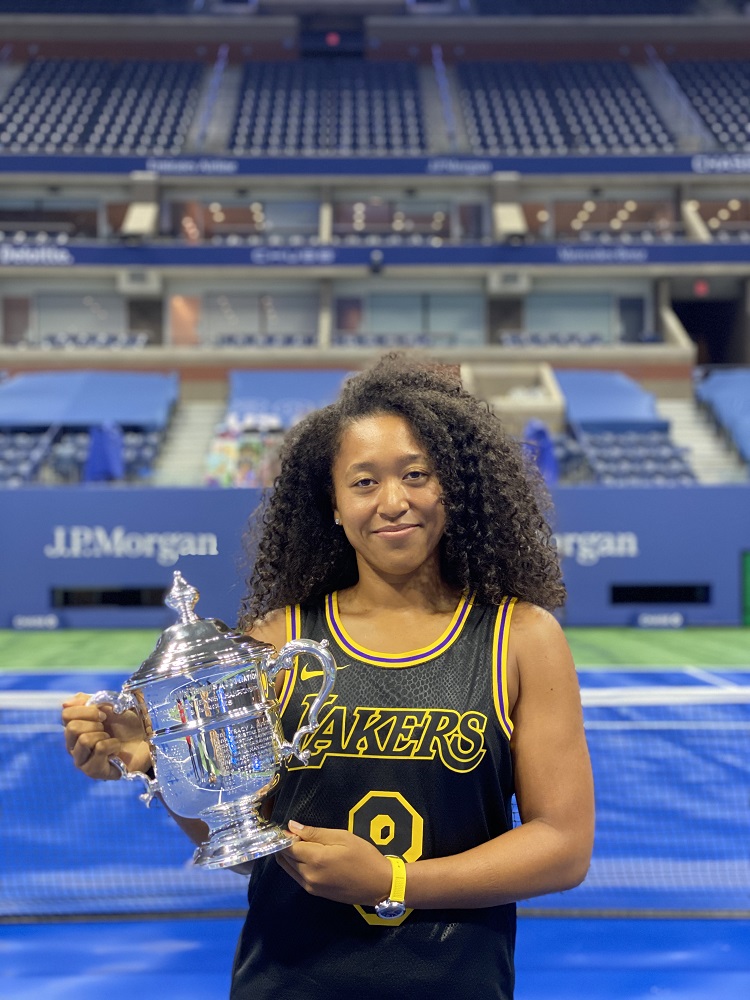
Over the course of your career you’ve had to publicly grapple with the media’s bewilderment and confusion about mixed race people. Do you feel like things have gotten better over those years as far as the way media outlets approach and talk about mixed race people?
I definitely feel like my situation is unique although it’s increasingly becoming the norm. Specifically in Japan, my hope is that aside from me, athletes like Rui Hachimura, Yu Darvish and Abdul Hakim Sani Brown inspire other half Japanese kids that they’re not alone and that it’s actually really cool to have a background that’s different. The way I see it, I’m not half anything because I feel both Japanese AND Haitian fully.
It’s been a hard year for everyone. What strategies are you using to cope with the heaviness of the moment?
It’s been a hard year and certainly has felt very unique but the way I get through is by taking advantage of my newfound time to do things that I never had the time to do before like learning how to horseback ride, getting better at photography, trying ornate dishes that I had never cooked before. My normal years are hectic and scheduled out months in advance so this has been a time of slowing down and has allowed for a lot of self reflection. The way I see it, my family and the people I care about are healthy so there’s not much more I can really ask for.
What advice do you have for young women who are emerging as trailblazers in their field right now?
I think being the first anything is really hard because there is no precedent and there are a lot of people who will doubt you (especially on the internet). My advice is to keep your head down, block out the haters and give it your all. My mentor, Kobe, once talked about how when you see a lion in the wild and it’s hunting, it may have flies around its eyes, but it doesn’t even notice them; it’s completely focused on its kill. That’s the same here: set your goal and never give in to doubt.
Ann-Derrick Gaillot is a freelance journalist and writer based in Missoula, Montana. Find more of her work at annderrickgaillot.contently.com.




